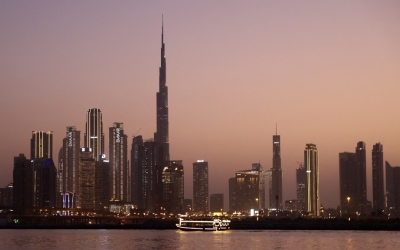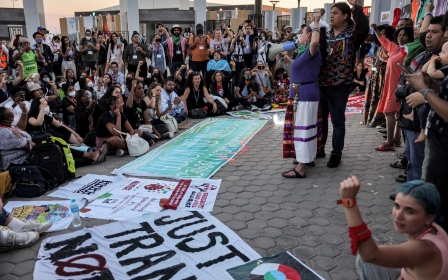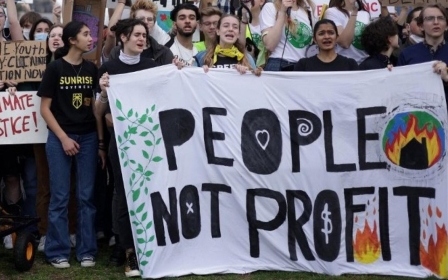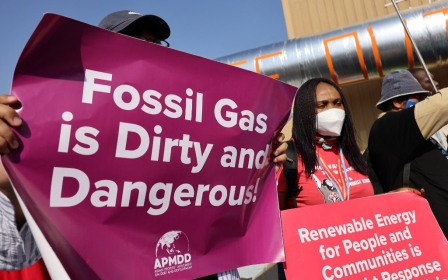Sultan al-Jaber: The UAE oil chief set to lead Cop28
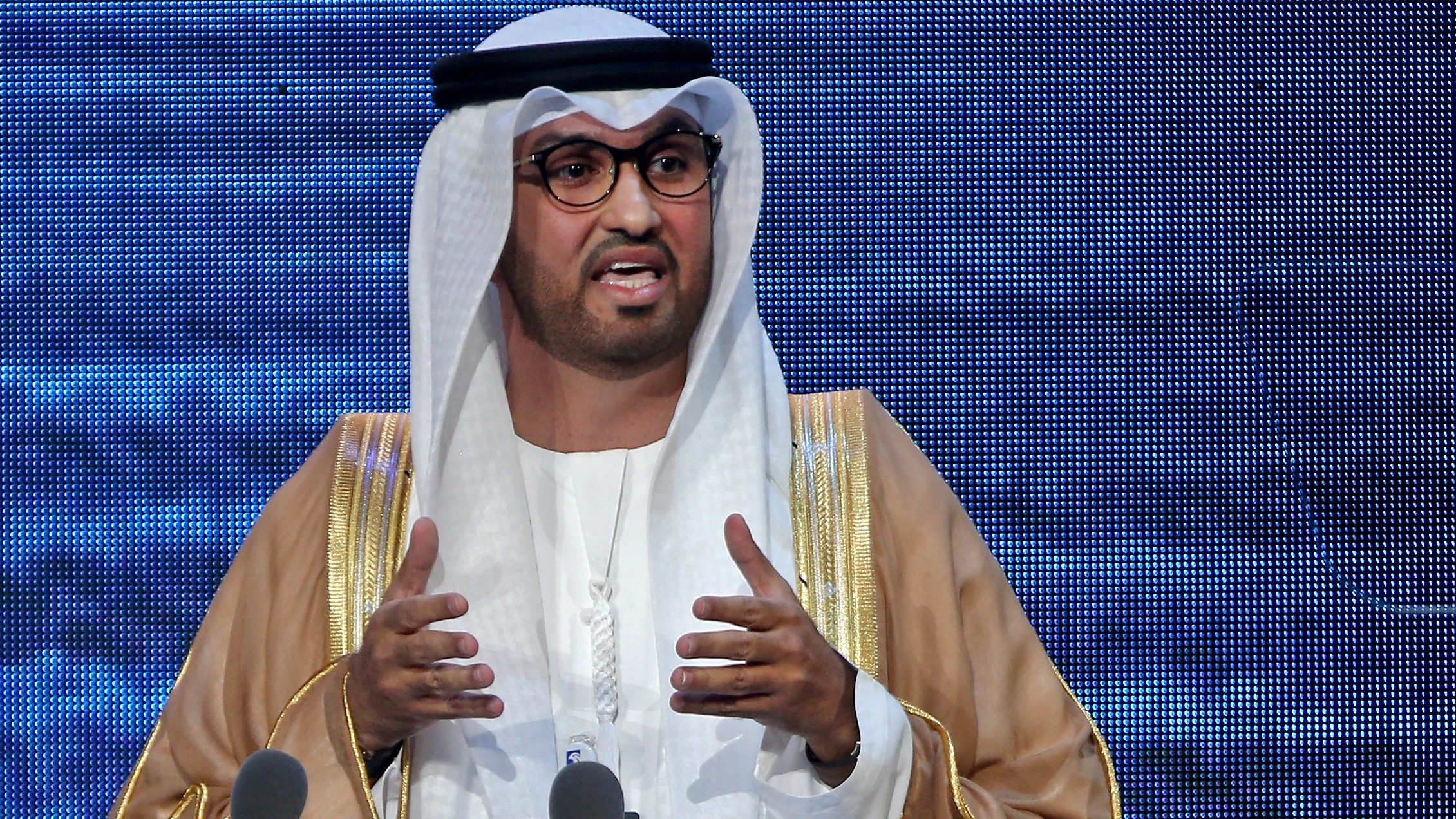
The head of the UAE’s national oil company is the new president of Cop28, the UN climate change conference set to be held in Dubai later this year.
Sultan Ahmed al-Jaber, chief executive of the Abu Dhabi National Oil Company (ADNOC), one of the world’s largest oil companies by production, was announced on Thursday as the head of the global summit.
“This will be a critical year in a critical decade for climate action,” Jaber said. “The UAE is approaching Cop28 with a strong sense of responsibility and the highest possible level of ambition.
'The future will require more oil and more hydrocarbon resources'
- Sultan Ahmed al-Jaber, speaking in 2021
“We will bring a pragmatic, realistic and solutions-oriented approach that delivers transformative progress for climate and for low-carbon economic growth,” he added.
Cop28 will take place in Dubai between 4-6 November.
New MEE newsletter: Jerusalem Dispatch
Sign up to get the latest insights and analysis on Israel-Palestine, alongside Turkey Unpacked and other MEE newsletters
Jaber's appointment has been strongly condemned by climate activists.
“Fossil fuels are the root cause of the climate crisis. His position as CEO of the Abu Dhabi National Oil Company raises grave conflict of interest issues,” said Climate Action Network International campaigner Harjeet Singh.
Energy executive
Born and raised in the UAE, Jaber completed his higher education in the US and UK.
He earned his bachelor’s degree in chemical engineering from the University of South California, before going on to study for a PhD in business and economics at Coventry University. He also holds an MBA from California State University.
Jaber began his professional career as an engineer at ADNOC, before heading to Mubadala, Abu Dhabi’s sovereign wealth fund, where he headed up its energy platform.
There, in 2006, he founded Masdar, a UAE government-owned renewable energy company.
He returned to ADNOC as the CEO in 2016, where he has been stark about his vision: to see the UAE raise its oil output from 3m barrels per day to 5m by 2030.
The Emiratis are already the third biggest oil producer in the 13-country Opec cartel.
“The future will require more oil and more hydrocarbon resources… Being the lowest-cost producer will always give us [the UAE] a competitive edge,” he told the Financial Times in January 2021.
Jaber has long combined being one of the UAE’s most senior oil executives and its public face of conversations about renewable energy.
In 2009, he was appointed by then UN Secretary General Ban Ki Moon to serve on an advisory group on energy and climate change.
That year, as the chief of Masdar, he led the UAE’s successful bid to host the headquarters for the intergovernmental International Renewable Energy Agency (IRENA).
In 2020, he was appointed as the UAE’s special envoy for climate change at all international forums.
Government minister
Jaber has been an Emirati government minister since 2013.
He initially served as minister of state, with portfolios including the economy, media, energy and infrastructure. In July 2020 he was appointed minister of industry and advanced technology.
He has also held a number of executive and board positions too, previously serving as chairman of the UAE’s media council, Abu Dhabi’s ports company and Sky News Arabia.
In 2013, the UK’s Queen Elizabeth II appointed him Commander of the Order of the British Empire (CBE).
Government ministers leading the UN climate change conference have become commonplace: Last year’s summit was led by Egyptian foreign minister Sameh Shoukry, while the British politician Alok Sharma led Cop26 (he stepped down from the UK government to carry out this role full time).
But Jaber is the first serving oil executive to assume the role.
Increasingly, global summits on climate and sustainability are being used as an opportunity for fossil fuel companies to exert their influence.
In November, campaign group Global Witness found that 636 fossil fuel lobbyists attended Cop27 in Egypt, a jump by 25 percent since the previous summit.The biggest delegation of oil and gas executives came from the UAE, with 70 delegates, followed by Russia with 33.
“Tobacco lobbyists wouldn’t be welcome at health conferences, arms dealers can’t promote their trade at peace conventions. Those perpetuating the world's fossil fuel addiction should not be allowed through the doors of a climate conference,” a spokesperson from Global Witness said at the time.
“It’s time governments got out of the pockets of polluters.”
Middle East Eye delivers independent and unrivalled coverage and analysis of the Middle East, North Africa and beyond. To learn more about republishing this content and the associated fees, please fill out this form. More about MEE can be found here.


